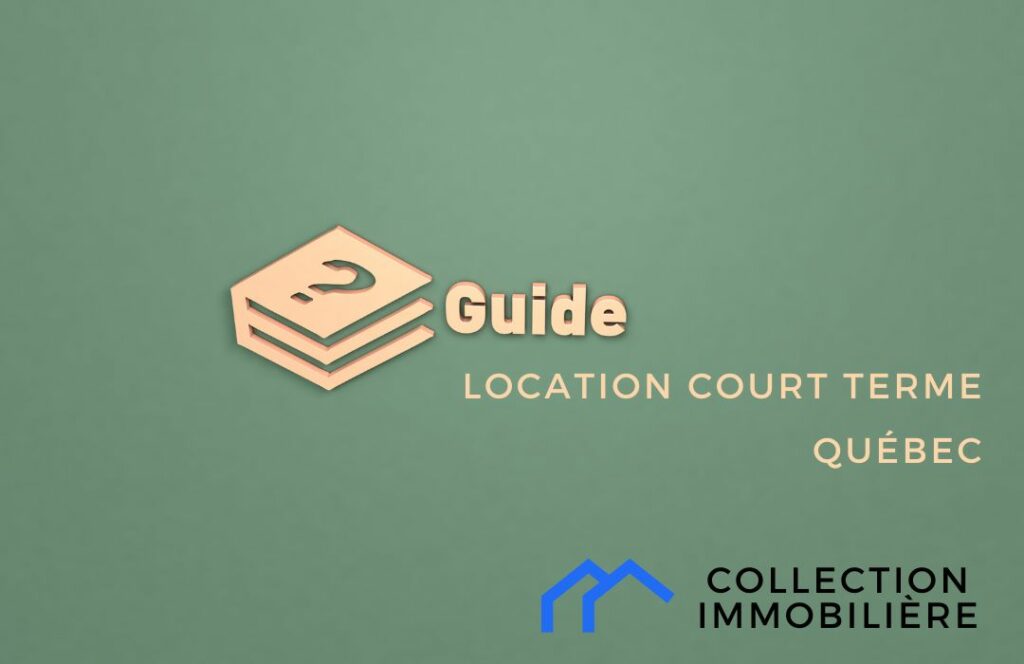Short-term rentals have grown considerably in recent years, mainly thanks to the emergence of online platforms such as Airbnb, Vrbo, and others. From charming Old Quebec City to the bustling streets of Montreal, many Quebec homeowners have seized the opportunity to rent out their homes, offering travelers a unique alternative to traditional hotels. But like any thriving industry, it has brought its share of challenges, particularly when it comes to regulations.
Municipalities, while recognizing the economic and cultural benefits of short-term rentals, have also had to address concerns such as housing availability, neighborhood safety, and tax fairness. As a result, each city has developed regulations tailored to its needs and specificities.
This guide provides an overview of the regulations in effect in Quebec's 10 largest cities. Whether you're a homeowner considering renting out your residence or a curious traveler, it's essential to know the rules that apply. Let's dive into the maze of short-term rental regulations together!
Importance of short-term rentals
What is short-term rental?
Short-term rental refers to the temporary provision of a dwelling, part of it or an apartment for a period generally less than one month.
Often, this type of rental is favored by travelers looking for a more personalized experience or an alternative to traditional hotels.
With the advent of online platforms such as Airbnb, Vrbo, and others, short-term rentals have gained visibility and accessibility, offering a multitude of choices for travelers and a new source of income for owners.
Growing trend of short-term rentals
The last decade has seen exponential growth in short-term rentals. The ease of use of platforms, travelers' quest for authentic local experiences, and the flexibility offered to owners have all contributed to this trend.
Additionally, with changing work patterns, including the growing popularity of remote working, many people have sought temporary accommodation for “working holidays,” further driving demand for short-term rentals.
For those who understand English, a site like that ofAirDNA offer analytics and data specific to short-term rental markets, providing property owners and managers with valuable insights to adjust their strategies and maximize revenue.
Using the data available free of charge on the site, we determined the location of our future rental chalet based on criteria such as growth, average cost per night, average occupancy rate, among others, in areas relevant to us.
While free information has limitations, it still provides valuable insights. Premium offerings, on the other hand, are comprehensive and highly detailed, but relatively expensive.
Economic impact on cities
The rise of short-term rentals has had a significant economic impact on many cities. On the one hand, it has generated additional income for local property owners, thus stimulating the local economy. Local businesses, such as restaurants, boutiques, and tourist attractions, have also benefited from the influx of travelers who often prefer "local" experiences to traditional tourist areas.
However, this growth has also raised concerns, particularly regarding rising housing prices and a reduction in available housing for long-term residents. These challenges have led many municipalities to implement specific regulations to balance economic benefits and residential needs.
Overview of regulations by city
With such a wide variety of regulations in effect in different cities, navigating the maze of laws and standards can be a daunting task for both property owners and travelers. To simplify this complexity, we've compiled a summary table that provides a clear overview of the main regulations for Quebec's 10 largest cities.
This table is designed to be a quick and easy resource, highlighting the key elements of each regulation. Whether you're trying to understand the maximum rental length, determine any specific taxes, or identify other unique city features, this table is your go-to guide.
For more information regarding a specific city, see the following section of the article: Details on regulations by city
| City | Basic regulations | Maximum rental period | Specific taxes, costs | Other special features |
|---|---|---|---|---|
| Montreal | CITQ classification certificate required. Establishment number on the advertisement | Less than 31 days | Provincial lodging tax (3.5%/night) | Occupancy permits in certain areas. Check if your area allows short-term rentals. |
| Quebec | Registration with the CITQ after obtaining a notice of compliance. | 31 consecutive days max, 90 nights/year for collaborative accommodation | Provincial lodging tax (3.5%/night) | Compliance with municipal standards and specific zoning required. |
| Mont-Tremblant | Registration required with the CITQ. | Less than 31 days | Separate taxation for tourist residences | Mandatory permit and affordable housing fund financed by additional taxes. |
| Wentworth-North | General ban on new establishments. | Less than 31 days | 150$ for a municipal permit. Fines 1,000$ to 2,000$ for non-compliance. | Strict restrictions on noise pollution and permitted zoning. |
| Longueuil | CITQ registration number required. | Less than 31 days | Not specified | Authorized throughout the country for primary residences. Restrictions apply to secondary residences. |
Details on regulations by city
Montreal
Requirements:
- To rent accommodation for tourist purposes in Montreal for a period of 31 days or less, it is necessary to have a classification certificate from the Corporation de l'Industrie Touristique du Québec (CITQ).
- Since May 1, 2020, every rental advertisement, online or offline, must include the establishment number.
Certificate:
- To obtain certification from the CITQ, it is essential to provide a “Notice of Compliance – Tourist Accommodation Establishment” signed by the municipality.
Location:
- Only certain districts allow this type of rental, and only in a few specific areas. A commercial or professional occupancy permit is issued if necessary in these areas. This permit, which specifies the uses or activities and the conditions of operation, must be posted in all premises not used as a dwelling.
Check that your district authorizes this type of rental here.
Recommendations and Restrictions:
- Key boxes and other items facilitating independent arrivals of tourists on public property are not permitted and will be removed.
- It is essential to comply with municipal regulations regarding safety and health.
Quebec
Collaborative Tourist Accommodation
Conditions to be respected
- Must be in the primary residence (owner or tenant).
- Possible rental of a single room or the entire accommodation (one group at a time).
- Short-term rental duration: maximum 31 consecutive days for one traveler or group.
- Maximum of 90 nights per year.
Registration procedure:
- Fill in thenotice of conformity which is a prerequisite
- Application for registration with the CITQ after obtaining a notice of conformity from the City of Quebec.
- The form for the notice of compliance is available on the CITQ website.
- The completed form must be sent to the city's email address.
Recommendations for hosts:
- Maintain good relations with the neighborhood.
- Inform tourists of the city's standards and rules regarding noise, waste management, and respecting quiet hours.
Commercial Tourist Accommodation
Conditions to be respected
- Applies to those who want to rent a place that is not their primary residence.
- Subject to various regulatory and tax obligations.
Registration procedure
- Verification of compliance with zoning.
- Obtaining a certificate of authorization for the operation of the use.
- Application for registration with the CITQ after obtaining a notice of conformity from the City of Quebec.
- The form for the notice of compliance is available on the CITQ website.
- The completed form must be sent to the city's email address.
Provincial and municipal requirements
- Display the registration number at the main entrance and indicate it on all advertising and web platforms.
- Payment of provincial lodging tax.
Specific rules for hotel establishments and tourist residences
- They are grouped into a single category at the municipal and provincial level.
- Maps of areas where C10 use is permitted are available for each borough.
- Since January 2019, tourist residences have been taxed at the same rate as hotels.
Development of the commercial tourist accommodation offer
- A process is underway to assess the growth potential of the tourist accommodation industry in Quebec.
Other information:
To find out if a permit or certificate is required, you can use thePermit Assistant.
Please feel free to ask additional questions if you would like more specific or detailed information on a particular point.
Mont-Tremblant
Nature of the regulation
- In Mont-Tremblant, short-term rentals, also known as tourist accommodation or tourist residences, are treated as commercial lodging. Therefore, they are subject to a separate tax rate.
Tax impact
- In the current context of inflation, rising interest rates, and a housing shortage, low-income households are the first to be affected, particularly when it comes to access to housing. To address this issue, the Mont-Tremblant City Council has created a fund dedicated to affordable housing. This fund is largely funded by the increase in the tax rate on tourist residences, thus generating additional revenue estimated at 1.3 million Canadian dollars for 2023.
Verification process
- Before considering short-term rentals, landlords should use the mapping tool provided by the city to verify whether their property is located in an area authorized for that specific use. If the property is indeed located in an authorized area, the owner must then contact the Planning Department to ensure whether a change of use certificate is required or not.
Registration
- Once the zone has been confirmed as authorized and all preliminary steps have been completed, owners must register with the Corporation de l'industrie touristique du Québec (CITQ). During this process, a CITQ notice of compliance form must be submitted for signature to the Urban Planning Department. This step can be completed by email at urbanisme@villedemont-tremblant.qc.ca. It is crucial to note that this registration is a legal obligation under the Tourist Accommodation Act and the provincial regulations on tourist accommodation.
Additional recommendations
- Owners are encouraged to follow all guidelines issued by the CITQ and to strictly comply with municipal and provincial regulations to ensure responsible tourist accommodation that meets established standards.
The town of Mont-Tremblant has implemented these regulations to strike a balance between the growth of tourism, which is an important source of revenue for the town, and the protection of the interests of permanent residents.
The establishment of an affordable housing fund is an example of how the city is trying to reinvest tourism revenue for the well-being of its residents.
Wentworth-North
General prohibition
- Following the adoption of several resolutions and regulations in 2022, the city of Wentworth-North has implemented strict prohibitions on short-term rentals, particularly with regard to the creation of new tourist accommodation establishments and the short-term rental of chalets as a complementary use to residential use.
Specific areas:
- Short-term rentals are only permitted in specifically designated areas within the Wentworth-Nord area. The areas authorized for short-term rentals are: H-04, H-06, H-13, H-16, H-22, H-23, H-33, H-39, H-53, H-69, H-70, and H-71.
- In zones C-01 to C-05, C-07 and C-08, short-term rental is permitted as a commercial use.
Rental conditions
- Short-term rentals are considered a complementary use to residential use and are only permitted in detached single-family homes.
- The residence can be rented for a maximum of 180 days per year.
- The rental chalet must be located at least 25 m from a neighboring residence.
Registration procedure
- Owners must first register with the Corporation de l'industrie touristique du Québec (CITQ).
- Then, an application for a certificate of authorization for short-term rental must be filed with the Municipality with all necessary documents, including confirmation of registration with the CITQ.
- The Municipality has 45 days to return the operating notice to the CITQ once the application is completed.
Costs and fines:
- The cost of a municipal permit for short-term rental is 150$.
- Renting without this permit results in a fine of 1,000$ per day for a first offense, and 2,000$ for a repeat offense.
- Fines of 500$ to 1,000$ may be applied in the event of noise nuisance for owners and tenants.
Other information:
- An excerpt from the nuisance by-law, provided by the Urban Planning Department, must be posted in a visible location on the rental cottage. Rentals of 31 days or more are governed by the Régie du logement and not by the CITQ or urban planning regulations.
Longueuil
Recent changes in the Tourist Accommodation Act
- Since September 1, 2022, the Tourist Accommodation Establishments Act has been replaced by the Tourist Accommodation Act (TAA).
- The law now distinguishes between primary and secondary residences.
- It is now mandatory to obtain a registration number from the CITQ, with a certificate of conformity from the City.
Categories of tourist accommodation establishments
- General tourist accommodation establishment: Hotels, hostels, etc. In accordance with zoning regulations, these commercial rentals are only permitted in certain areas.
- Youth tourist accommodation establishments: Establishments with at least 30% units such as dormitories or primarily provided for disadvantaged or disabled people.
- Main residence establishment: Rental in a primary residence, without providing meals.
Specific rules for tourist accommodation in a main residence
- It is permitted throughout the territory of Longueuil.
- Rentals by a company in a second home are considered a commercial activity.
- To qualify as a primary residence, certain conditions must be met.
- A certificate from the CITQ is required to rent accommodation for tourist purposes.
How to report an illegal tourist residence
- Violations can be reported to Revenu Québec online, by telephone or by mail.
Role of the City
- The Longueuil DAU is responsible for enforcing urban planning regulations and intervenes following a complaint.
- In the event of security problems, the SSIAL can intervene.
- Dwellings that obtained a registration number after September 1, 2022 must comply with municipal regulations.
Common issues and challenges
The rapid and often unforeseen growth of short-term rentals, driven in part by platforms like Airbnb and Vrbo, has created a range of issues and challenges that cities have had to address.
Here is an exploration of common themes observed in major cities in Quebec and elsewhere.
Balance between tourism and residential housing
Tourism is a key economic pillar for many cities. It generates revenue, boosts local businesses, and enhances the city's cultural and historical image. Short-term rentals have added a new dimension to the tourism experience, allowing visitors to live like locals. However, the rapid increase in short-term rental properties has also reduced the availability of housing for permanent residents. In some desirable neighborhoods, long-term residents have found themselves competing with tourists for increasingly scarce and expensive housing.
Rent increases and housing affordability
With the potential to generate higher income through short-term rentals, many landlords have been tempted to convert their properties into vacation rentals. This has led to a decrease in the number of homes available for long-term rentals, leading to rising rents in some areas. For residents, particularly young professionals and families, this rising cost can make it difficult to access affordable housing.
Compliance with safety and quality standards
Short-term rentals, due to their temporary nature, can sometimes neglect certain safety or quality standards expected of traditional accommodation. This has raised concerns about visitor safety and building integrity.
Impact on community cohesion
The rapid turnover of occupants in short-term rentals can affect neighborhood dynamics and cohesion. Residents may feel disconnected or frustrated by the constant flow of visitors, who may not be as invested in the well-being and tranquility of the community.
To conclude this section, although short-term rental offers many advantages for both owners and tourists, it also presents major challenges that require careful regulation and a balanced approach. Cities must strike a balance between promoting tourism, ensuring a quality visitor experience, and protecting the rights and needs of their residents.
Conclusion
The regulatory landscape for short-term rentals in Quebec is constantly evolving. As we've seen, each city has its own rules, which can vary considerably depending on local issues. Whether you're a landlord looking to rent out your property or a traveler looking to enjoy a stay in La Belle Province, it's crucial to familiarize yourself with local regulations to avoid any surprises or fines.
It's also important to note that these regulations are in place not only to protect the interests of local residents, but also to ensure the safety and quality of the experience for travelers. By respecting these rules, we all contribute to a harmonious and sustainable rental environment.
Finally, don't hesitate to consult official city websites or contact municipal authorities directly if you have any specific questions or concerns. Short-term rentals offer enormous opportunities, but they also come with their share of responsibilities. Let's all be informed and respectful to make the most of them.
Source :
- https://montreal.ca/sujets/locations-touristiques-court-terme
- https://www.ville.quebec.qc.ca/citoyens/reglements_permis/hebergement-touristique-collaboratif.aspx
- https://www.ville.quebec.qc.ca/gens_affaires/reglements_permis/hebergement/index.aspx
- https://www.villedemont-tremblant.qc.ca/citoyens/urbanisme/residence-de-tourisme
- https://wentworth-nord.ca/citoyen/urbanisme/location-a-court-terme/
- https://www.longueuil.quebec/fr/location-touristique-court-terme



